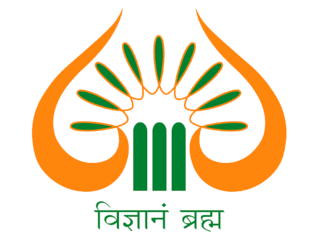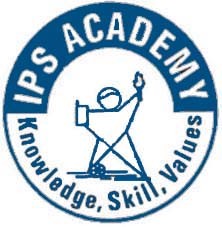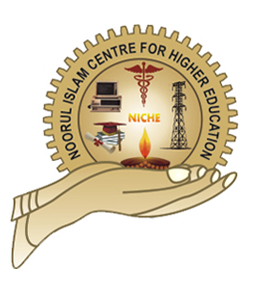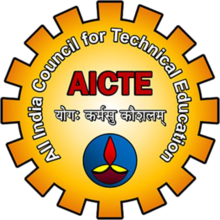
The Indian Institute of Planning and Management (IIPM) was an unaccredited institute headquartered in New Delhi, which previously had 18 branches across India. IIPM was shut down after multiple allegations and lawsuits concerning the institute's use of false advertisements and fraudulent practices. After several controversies, the school's Honorary Dean Arindam Chaudhuri decided to shut down all campuses across India, except the one in Delhi. Founded in 1973, the institute used to offer undergraduate, postgraduate and doctoral programmes in national economic planning and entrepreneurship, and international and fellowship programmes. Its executive education programmes include non-credit courses and visits to foreign business schools. IIPM is not accredited by UGC or All India Council for Technical Education (AICTE), and is not affiliated with the public Indian Institutes of Management.

University Grants Commission is a statutory body under Department of Higher Education, Ministry of Education, Government of India. It was set up in accordance to the UGC Act 1956 and is charged with coordination, determination and maintenance of standards of higher education in India. It provides recognition to universities in India, and disbursements of funds to such recognized universities and colleges. The UGC headquarters are in New Delhi, and it has six regional centres in Pune, Bhopal, Kolkata, Hyderabad, Guwahati and Bangalore. A proposal to replace it with another new regulatory body called HECI is under consideration by the Government of India. The UGC provides doctoral scholarships to all those who clear JRF in the National Eligibility Test. On an average, each year ₹725 crore (US$91 million) is spent on doctoral and post-doctoral fellowships by the commission.

National Institute of Technology Durgapur, formerly known as Regional Engineering College, Durgapur, is a public technical university in the city of Durgapur in West Bengal, India. Founded in 1960, it is one of India's oldest technical universities. It is located on a campus of 187 acres (0.75 km²).
Department of Higher Education is the department under Ministry of Education, that oversees higher education in India.

Shri Mata Vaishno Devi University,, commonly referred to as SMVD University or SMVDU, is a Government Owned Higher Institution/University located in Katra, Reasi district, Jammu and Kashmir, India. It was founded in 1999, as fully residential and technical university, a Public University recognized by UGC under section 2(f) and 12(B) and is established on more than an 470-acre (190 ha) residential and provides technical education in the field of engineering, architecture, science, management, philosophy and other subjects, with all technical courses recognised by AICTE, University Grants Commission (India), National Board of Accreditation and Council of Architecture.

Bharath Institute of Higher Education and Research (BIHER) also known as Bharath Institute of Science and Technology (BIST), informally Bharath University, and formerly Bharath Engineering College is a private deemed university located in Chennai, the capital of Tamil Nadu, India. It is recognised by the University Grants Commission (UGC) and is accredited by the National Assessment and Accreditation Council (NAAC) with the highest grade of A. It is also approved by the All India Council for Technical Education (AICTE).

Jamal Mohamed College is a Government-aided and self-financed institution founded in 1951 by M. Jamal Mohamed Sahib and N.M. Khajamian Rowther. The college campus is located in Tiruchirappalli, India and is affiliated to Bharathidasan University. The Day session is for male students and the Evening session is for female students.

The Ministry of Education (MoE) is a ministry of the Government of India, responsible for the implementation of the National Policy on Education. The ministry is further divided into two departments: the Department of School Education and Literacy, which deals with primary, secondary and higher secondary education, adult education and literacy, and the Department of Higher Education, which deals with university level education, technical education, scholarships, etc.

Siksha 'O' Anusandhan (SOA), formerly Siksha 'O' Anusandhan University (SOA University) is a private deemed university located at Bhubaneswar, Odisha, India. The university is composed of nine degree-granting schools and colleges and has a student body of around 15,000. Many of SOA's programs are nationally accredited, including engineering, medicine, pharmacy, business, nursing, biotechnology, science, humanities, environment, nano technology, materials science, agriculture and law.

India has a publicly funded higher education system that is the third largest in the world. The main governing body at the tertiary level is the University Grants Commission, which enforces its standards, advises the government, and helps coordinate between the centre and the state. Accreditation for higher learning is overseen by 15 autonomous institutions established by the University Grants Commission (UGC).

Assam Don Bosco University is a state private, non-profit, co-educational, Catholic research university located in Assam, India. The university was founded on March 29, 2008, by the Salesians of Don Bosco (SDB) and executed by the Don Bosco Society, Azara, Guwahati. The university was officially established through the Assam Don Bosco University Act, 2009, on 9 January 2009 and created under the Assam Private Universities Act 2007.
Jaipur National University (JNU), established on 22 October 2007, is a private university located in Jaipur, the capital of Rajasthan, India. Founded through an ordinance passed by the Government of Rajasthan.

Himalayan University, Itanagar, Arunachal Pradesh, India, is a non-profit university recognized by University Grant Commission, Government of India under section of 2f of UGC act 1956. The university was established to develop and uplift the economy through higher education to raise the literacy rate that make up especially North Eastern part of India as well as all other parts of India. The University is accredited and recognized by All India Council for Technical Education (AICTE), Pharmacy Council of India (P.C.I), Bar Council of India (B.C.I), Rehabilitation Council of India (R.C.I) and is also a member of AIU, AIMA, CII.
India has the largest numbers of engineers as well as the largest number of engineering education institutes and infrastructure in the world. As of 2021, India annually produces 1.5 million engineering graduates. India's technical education infrastructure includes 2500 engineering colleges, 1400 polytechnics and 200 schools of planning and architecture.

Institute Of Engineering & Science IPS Academy Indore is an Autonomous engineering education institution affiliated to RGPV BHOPAL under UGC guidelines, located at Indore city beside NH-3 in Madhya pradesh state, India. It was established in Indore on 19 October 1999 after securing approval of the All India Council for Technical Education, New Delhi, and Government of Madhya Pradesh to commence in the 1999–2000 academic year. It ranks among the top 45 private engineering institutions in India.

The National Board of Accreditation (NBA) is one of the two major bodies responsible for accreditation of higher education institutions in India, along with the National Assessment and Accreditation Council (NAAC). NBA accredits technical programmes, such engineering and management programmes, while NAAC accredits general colleges and universities. NBA is a full member of the Washington Accord.

Noorul Islam Centre for Higher Education (NICHE), formerly Noorul Islam College of Engineering, is a private co-educational Institution in Kumarakovil, Thuckalay, Kanyakumari District, Tamil Nadu, India. The institution was founded in 1989 by A.P. Majeed Khan and it was declared as a Deemed to be University by the Ministry of Human Resource Development, Govt. of India at 8 December 2008. It is now run by Noorul Islam Centre for Higher Education (NICHE) Society.














